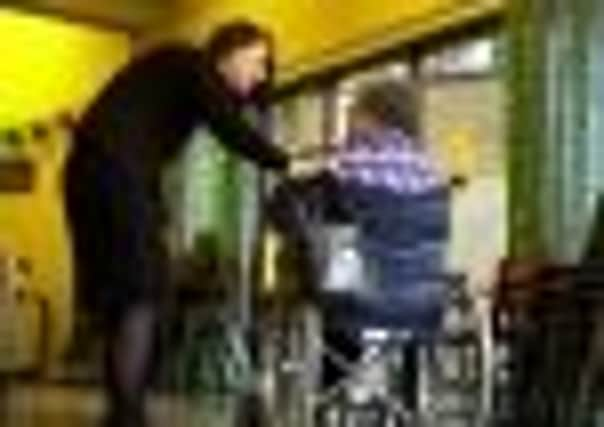Margaret Paterson: Let’s tackle old problem of isolation at Christmas


It is a sad reflection on the state of modern life that many people are forced, through work or for other family commitments, to move away from where they grew up and from their elderly parents.
This week, older people’s charity WRVS published a report which highlighted this phenomenon and showed that the pressure of their grown-up children’s work and family commitments is taking its toll on Scotland’s older people, with over 18,000 having children who are too busy to see them.
Advertisement
Hide AdAdvertisement
Hide AdWe are not blaming people for having to move away from their parents, as this is often beyond their control, particularly in the current economic climate.
Of course it’s also a particularly big issue in Scotland where, in rural communities, work can be hard to find. Eighty-two per cent of children who have moved away from their older parents have done so for work reasons.
Older people themselves don’t want to heap the guilt on either; our report found that the vast majority (93 per cent) of older people feel that their grown-up children see them as much as they can.
However, the sad fact still remains that 17 per cent of older people would like to see their children more often and this increases the further away that their children live. Sixty-seven per cent of those that live 200 miles or more away from their children would like to see more of them. For 11 per cent of older people in Scotland, their nearest child lives more than an hour’s drive away and this can be particularly concerning in case of an emergency.
The knock-on impact of grown-up children living long distances away from their parents is that older people are often left feeling isolated and lonely. The WRVS research found that 22 per cent of older people feel lonely and this varies across the UK, with Scottish people reporting the most loneliness (27 per cent of older people), compared with 22 per cent in England and 17 per cent in Wales.
This increases when it comes to older people who live by themselves, with 75 per cent of older people who live alone reporting that they feel lonely. This is only going to get worse as our population ages. And, worryingly, our research found that those who live alone are likely to have less contact with their grown-up children.
In the run up to Christmas, this research makes particularly sad reading. But it isn’t all doom and gloom. WRVS’ 9000 volunteers across Scotland are out there day in, day out, and also over the Christmas period, providing services to older people to help prevent them feeling lonely. Services such as Meals on Wheels, transport, community centres, lunch clubs, books on wheels and befriending can make a real difference to older people’s lives through helping them get out and about and keep connected to their local communities.
Of course, it is not just down to family members, the State or even charities like WRVS to look out for older people. We are all part of the same community and we all need to pull together, even more so at Christmas, to make sure that the older members of our community are looked after.
Advertisement
Hide AdAdvertisement
Hide AdPerhaps these days we know our neighbours a little less than we would have a couple of generations ago. Or perhaps we are a bit shy about knocking on someone’s door to check they are OK. But we would urge you to pop round and see an elderly neighbour over the coming days and weeks, have a chat and have a cup of tea. It could make the world of difference to them.
• Margaret Paterson is the head of WRVS Scotland